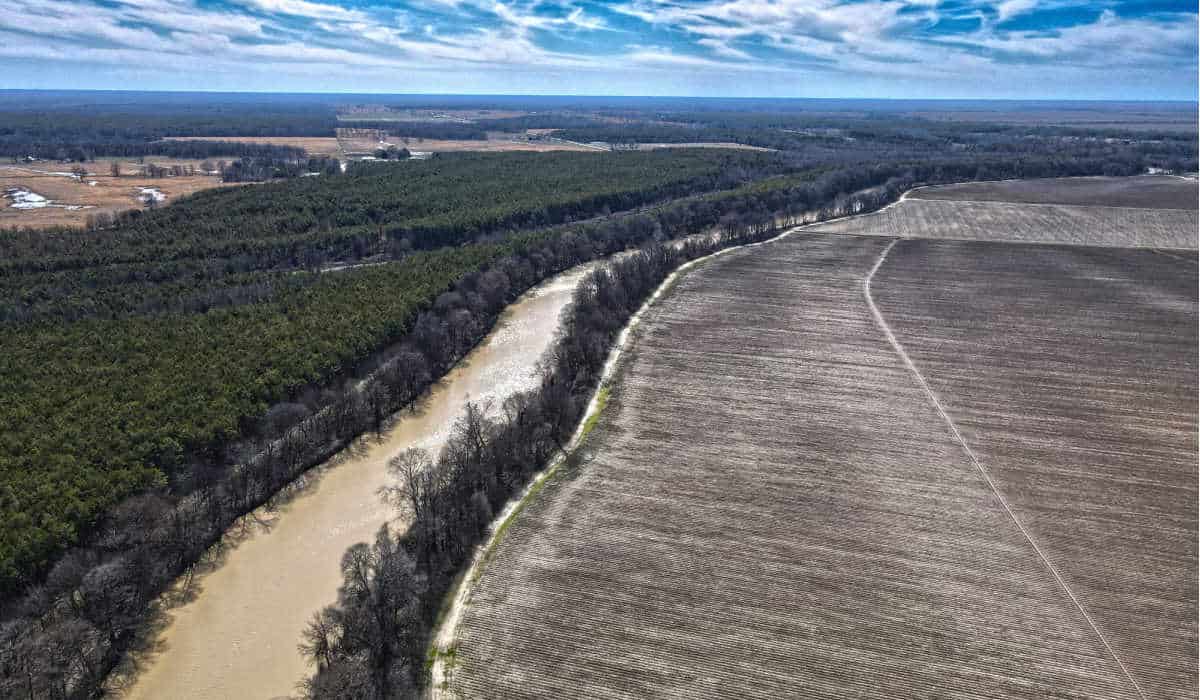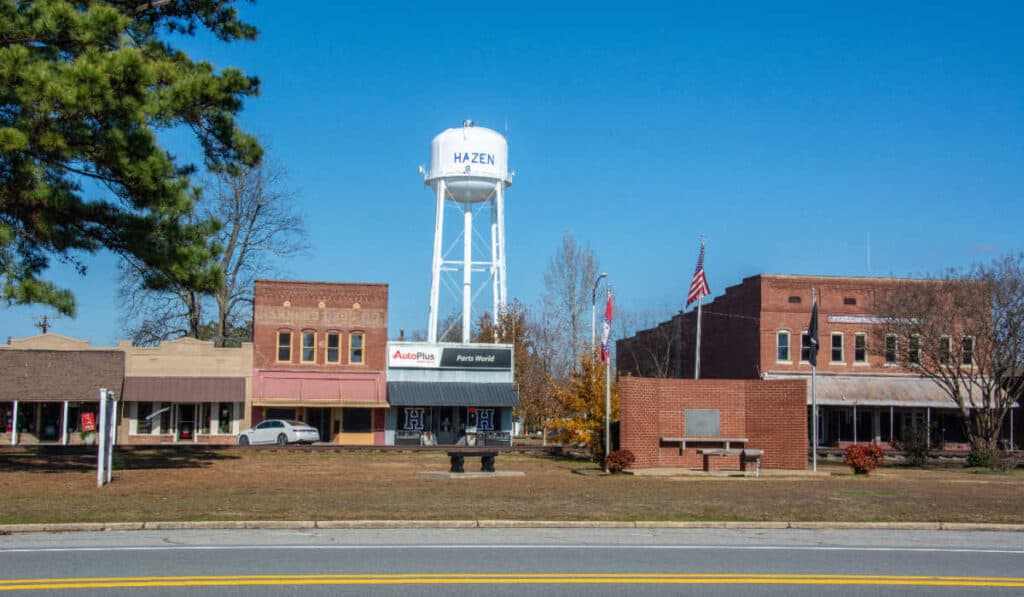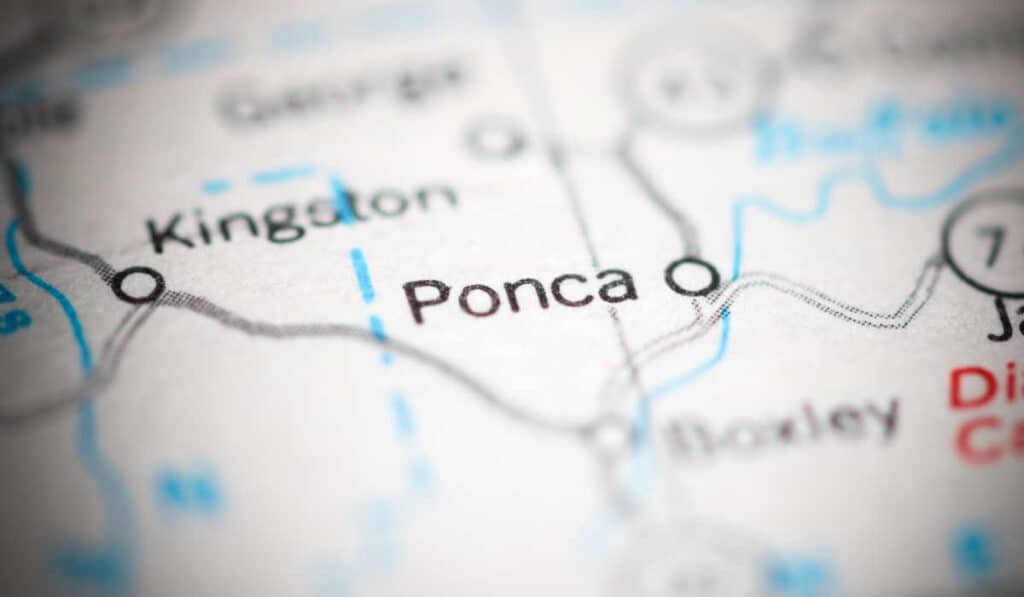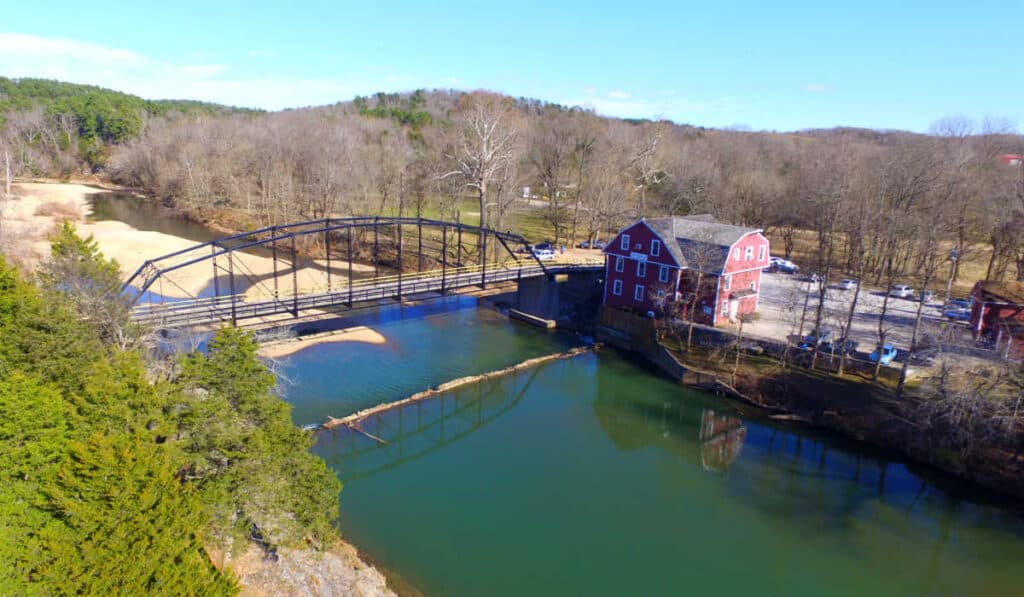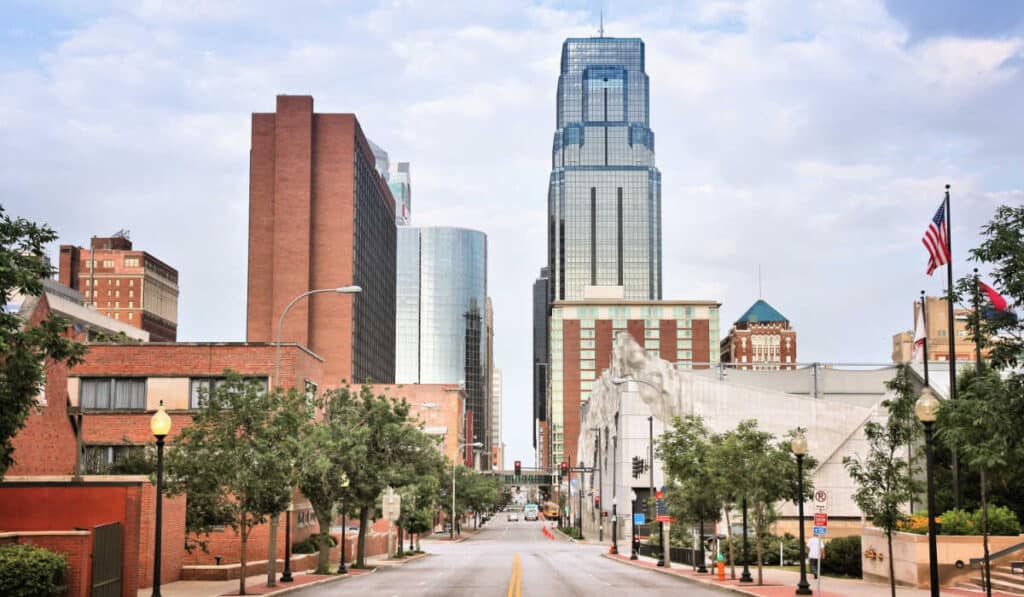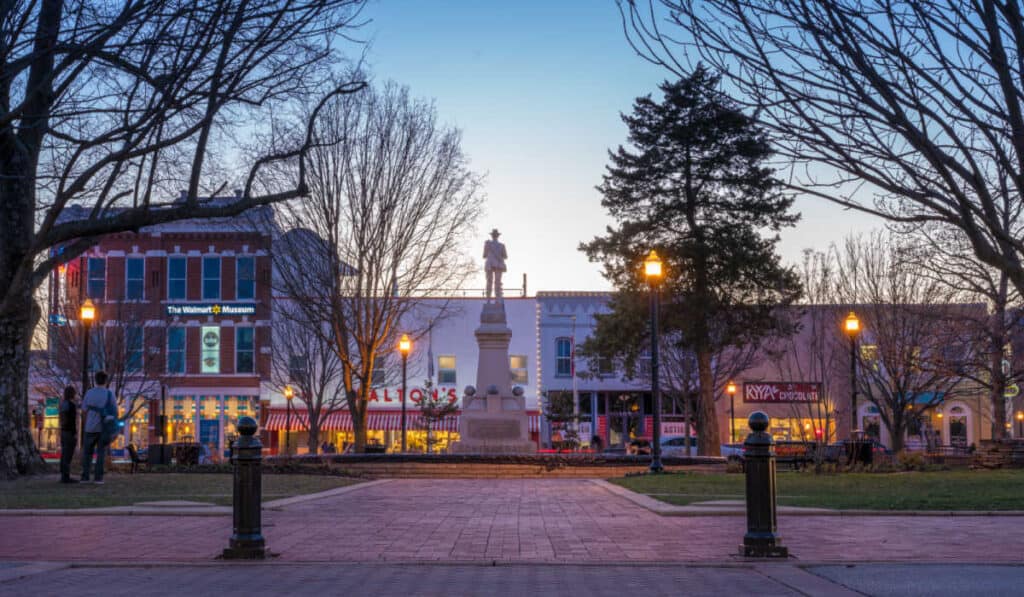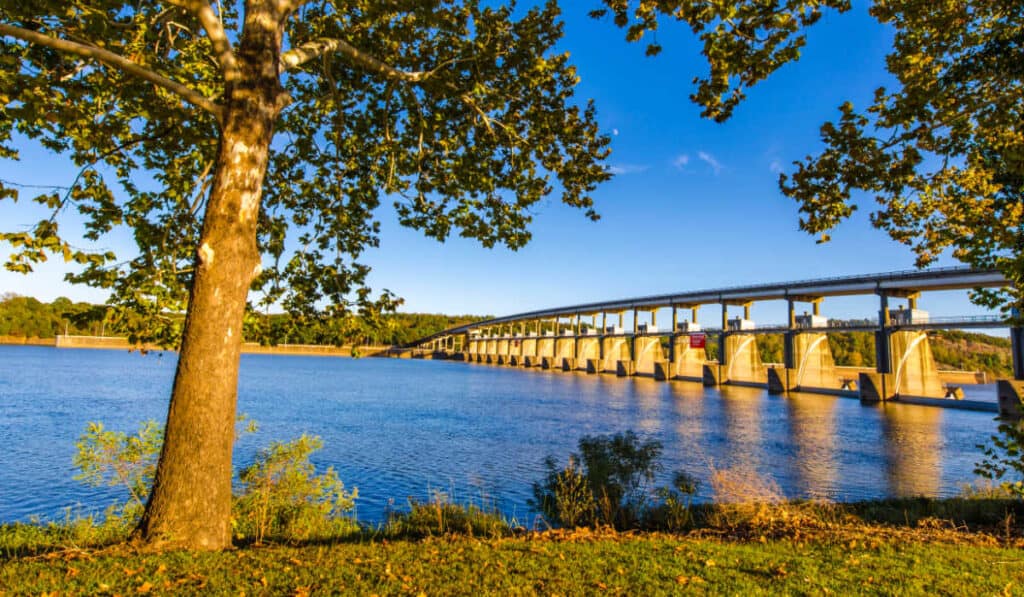Eudora, Arkansas, a charming city located in Chicot County, has a rich history and unique characteristics that make it a fascinating place to explore. As a small city situated in the southeastern corner of Arkansas, it borders Louisiana and Mississippi, offering an engaging blend of various regional influences. My fascination with Eudora has grown over time, as I’ve learned more about its roots in antebellum plantations, the impact of the early twentieth-century railroad, and its resilience during the Flood of 1927.
One of the things that sets Eudora apart is its title as the “Catfish Capital of Arkansas.” With an abundance of water acres dedicated to catfish production, the city’s agribusiness landscape is astounding, complemented by surrounding corn, cotton, rice, and soybean crops. Not only does this city offer agricultural wonders, but it also boasts a close proximity to the stunning Mississippi River and the beautiful Grand Lake – a haven for fishing enthusiasts, who flock to Eudora for some of the best fishing experiences in the country.
As I continue to uncover the various aspects of Eudora, Arkansas, it’s evident that this city offers a compelling mix of history, industry, and natural beauty. From its once thriving antebellum plantations to its current status as a hub for agribusiness and fishing, Eudora remains a captivating destination that showcases the rich heritage of southeastern Arkansas.
History
Eudora, Arkansas has a rich history that dates back to the mid-19th century. The town was once part of the Eudora Plantation, owned by E. C. James. The plantation was named after his daughter, Frances Eudora James, who tragically passed away at the young age of 4 in 1858.
In the early 20th century, the Iron Mountain Railway played a significant role in the development of Eudora. The railway began a line in 1901 to connect Memphis, Tennessee, and Louisiana, passing through Helena and other towns in the Arkansas Delta. By 1902, the tracks were completed through the area, significantly impacting the growth and economic prosperity of the town.
My research led me to discover that one of the first houses in the town was built by a family named Sweet around 1858. This home later became known as the W. H. Stephenson house. First Baptist Church, an African-American congregation, was also established in 1860, showcasing the town’s rich, diverse history.
Eudora, Arkansas is located in Chicot County, which is bordered by the Mississippi River. The county is known to have some of the most fertile farmland in Arkansas. By 1860, several Jewish families and businesses had made Eudora their home, further contributing to the area’s cultural mosaic.
Today, Eudora is a small town with a population of 2,269 as per the 2010 census. The town has experienced a slight decrease in population since 2000, but it continues to be a vital part of Arkansas’s southeast corner, bordering Louisiana and Mississippi. The residents of Eudora maintain a strong connection to their town’s history.
Geography
Location
As a city in Chicot County, Arkansas, Eudora is located in the southeastern part of the United States. The coordinates are 33°6′53″N 91°15′46″W, which places it close to the borders of Mississippi and Louisiana. Situated near the banks of the Mississippi River, Eudora is surrounded by fertile land ideal for agriculture.
Elevation
Due to its unique positioning on a ridge that rises 25 feet above the surrounding Delta flatlands, Eudora has been able to withstand major natural disasters, like the devastating Flood of 1927. This elevation has played a key role in its survival and growth over the years.
Nearby Cities
Some of the nearby cities and towns include:
- Grand Lake, a small community southeast of me along the Mississippi River, has a rich cultural heritage tied to the region’s river-based economy.
- Lake Village, the county seat of Chicot County, is north of me and offers recreational activities on beautiful Lake Chicot.
- Greenville, located across the Mississippi River in the state of Mississippi, is a larger city that provides additional resources and amenities for my residents and visitors.
In summary, the location of Eudora, Arkansas, benefits from an advantageous geographical position that has allowed it to survive for many years. This, coupled with its close proximity to various cities and natural resources in the region, makes Eudora an important part of the southeastern corner of Arkansas.
Demographics
Eudora, Arkansas is a small city located in Chicot County. As of the most recent data, the city’s population is estimated to be around 2,251 people, with a median age of 38.9 years. While Eudora has experienced some changes in population over recent years, the following racial and ethnic composition has largely remained the same.
The majority of Eudora’s residents identify as African American, making up a significant 92.23% of the population. White residents are the next largest racial group, comprising 6.44% of the city’s populace. Other racial groups in Eudora include those identifying as two or more races (1.33%) and Native American (0%). There are no notable populations of Asian, Native Hawaiian, or Pacific Islander individuals, and individuals identified as belonging to other races make up 0% of the population.
Regarding age demographics, the U.S Census data for Eudora reveals a fairly consistent distribution among different age categories. There is a concentration of residents within the 18 to 64 age range, accounting for about 57% of the population. Individuals under the age of 18 make up another significant portion, with those aged 65 and over comprising the remaining demographic segments.
In summary, as a small city in Chicot County, Arkansas, Eudora has a largely African American population and a diverse age distribution. With a clear understanding of these demographics, we can better appreciate the cultural and social identity of this unique community.
Economy
Eudora, Arkansas is a small town with a population of just over 500 people. The cost of living in Eudora is relatively low compared to other cities. For example, a two-bedroom apartment can be rented for around $560 on average, while the US average for 2 bedrooms is $1,430.
In Eudora, 701 people are employed in various industries. The largest industries in the town are Manufacturing (334 people), Health Care & Social Assistance (132 people), and Retail Trade (52 people). The highest-paying industries in Eudora include Public Administration ($32,500), Manufacturing ($31,775), and Total ($24,543).
When it comes to the local economy, I should mention that there is one grocery store, two dollar stores, and a factory that serves as the county’s largest employer. The per capita income for Eudora stands at $9,437. Unfortunately, 34.6% of families and 36.5% of the population live below the poverty line, including 43.3% of those under age 18 and 30.0% of those age 65 or over.
Eudora takes pride in being one of the featured cities on the Great River Road. The town is in close proximity to the Mississippi River and Grand Lake, providing excellent fishing opportunities. Due to these opportunities, Eudora has earned the nickname Catfish Capital of Arkansas.
Government
City Leadership
As a resident of Eudora, Arkansas, I am well-informed about our local government and its leaders. Our city falls under the jurisdiction of the City of Eudora, which is headed by the Mayor, Tomeka Butler. The Mayor is responsible for overseeing the city’s operations and ensuring that it runs smoothly and efficiently for all residents.
In addition to Mayor Butler, the Eudora city government comprises a group of dedicated Aldermen. These elected officials are responsible for representing the interests and concerns of their respective wards. They work alongside the Mayor in shaping local policies, managing city resources, and addressing community needs.
To maintain transparency and encourage active community participation, the City of Eudora organizes regular council meetings. These meetings provide residents like myself with an opportunity to voice any concerns or suggestions we have regarding city affairs.
Eudora’s city leadership and organizational structure ensure that our town remains a thriving and supportive community. I have confidence in their ability to address the needs of both residents and businesses, fostering growth and progress for our city.
Culture and Recreation
Arts
In Eudora, Arkansas, I find a vibrant arts scene at the J. Austin White Cultural Center. The center offers music, art, theater, and other activities for children and youth in Southeast Arkansas. I can participate in oral history classes, workshops, guest performances, and even etiquette classes. The Cultural Center is an integral part of the community, engaging residents of all ages in various artistic pursuits.
Outdoor Activities
Eudora’s close proximity to the Mississippi River and the surrounding Delta region offers an array of outdoor activities. Since Eudora is in the southeast corner of Arkansas, bordering Louisiana and Mississippi, it was once known as the Catfish Capital of Arkansas. With that in mind, I can take part in fishing and appreciate the natural beauty of the area.
In addition to its rich fishing culture, Eudora is home to the Eudora Garden Club and the WPA-Built Eudora Garden Center. These community spaces allow me to immerse myself in horticulture, attend meetings, and socialize with other residents. The Eudora Garden Center provides a perfect spot for spending time outdoors while learning about and contributing to the local flora.
Overall, Eudora offers a variety of options for both artistic and outdoor enthusiasts alike. From its thriving arts scene to the abundance of recreational opportunities in nature, I can experience a diverse array of cultural and recreational activities in this quaint Arkansas town.
Education
When exploring Eudora, Arkansas, it’s important to note the local educational opportunities offered within the area. The city is home to Eudora Elementary School, a public school that serves the community’s needs for primary education. As a matter of fact, Eudora Elementary School is part of the Lakeside School District and is located at 566 S Mabry St, Eudora, AR 71640. You can contact them at 870-355-6040 for more information about their programs and offerings.
Eudora Elementary School is dedicated to providing students with a comprehensive education and fostering a positive learning environment. The school’s staff includes a principal, teachers, and support staff who work diligently to help students succeed academically and personally. In addition, they have resources such as Dyslexia support, parent and family engagement plans, student handbooks, and professional development schedules for their faculty.
Another valuable resource for evaluating local schools in Eudora is GreatSchools.org, which rates schools based on academic performance and equity. Eudora Elementary School currently has a rating of 4 out of 10 for academics, showing room for improvement. Although the score is not ideal, it’s vital to remember that these ratings might not capture the full picture of the school’s educational quality.
In conclusion, Eudora, Arkansas, offers educational opportunities mainly through Eudora Elementary School, which is a part of the Lakeside School District. While academic ratings may not be perfect, the school is dedicated to ensuring students receive the support and resources they need to excel in their learning endeavors.
Infrastructure
Eudora, Arkansas has a rich history when it comes to its infrastructure. Established as a result of antebellum plantations and an early twentieth-century railroad, the city has developed over the years into a well-rounded community. My experience of the city gives me a unique perspective on its infrastructure.
The railroad has played a significant role in the development of Eudora. In the early 1900s, it not only connected the city to other parts of Arkansas but also facilitated the transportation of goods and people. Today, the railroad remains an essential part of Eudora’s transportation system, contributing to the local economy and the city’s growth.
A variety of public services can be found in Eudora, including the local post office. The post office serves residents and businesses alike, providing essential postal services and facilitating communication within and outside the city. As a resident, I appreciate the efficiency and reliability of their services.
Eudora’s civic and religious institutions, such as the First Baptist Church, also contribute to the city’s infrastructure. The church, situated near Main Street, has been an integral part of Eudora’s community for generations. Through various activities and outreach programs, the church fosters a sense of unity and support among residents.
Main Street is another vital aspect of Eudora’s infrastructure. As the city’s primary thoroughfare, it connects the various neighborhoods, businesses, and institutions that make up Eudora. Along Main Street, you’ll find a mix of retail establishments, restaurants, and professional services that cater to the needs of residents and visitors.
Eudora’s infrastructure, with its mix of transportation, public services, and civic institutions, has supported the city’s growth and development over the years. As a resident, I have witnessed and benefited from these essential services and facilities, giving me a deep appreciation for the city I call home.
Social Issues
Crime and Violence
Eudora, Arkansas, a small city, has been experiencing a surge in crime and violence, with a series of shootings and home invasions plaguing the community. In response to this wave of crime and fearing for the safety of its residents, city officials decided to implement an emergency curfew to help curb the violence.
The curfew, which began at 8 p.m. each night, led to a range of reactions among Eudora’s residents. While some people supported the measure as a necessary step to restore law and order, others felt that it infringed on their constitutional rights and limited their freedom of movement. Despite the controversy, the curfew remained in place as a short-term solution while authorities worked to address the root causes of the violence.
The Eudora Police Department, along with the Arkansas State Police, have been working together to conduct investigations and arrest those responsible for the crimes. As a resident of Eudora, I have seen local authorities increase their presence in the area, trying to provide some reassurance to the community and identify the individuals responsible for the crime wave.
However, with manpower and resources stretched thin, the city has faced challenges in effectively curbing the violence. This has led to an increasing sense of fear among citizens, with many questioning the effectiveness of the curfew and their faith in the justice system.
In Eudora and similar communities across Arkansas, addressing issues of crime and violence requires not only a strong police presence and swift action against offenders but also a commitment to addressing the underlying socio-economic factors that contribute to the problem. As a resident, I hope that the city can marshal the necessary resources to resolve the issue and restore peace and safety in our town.

